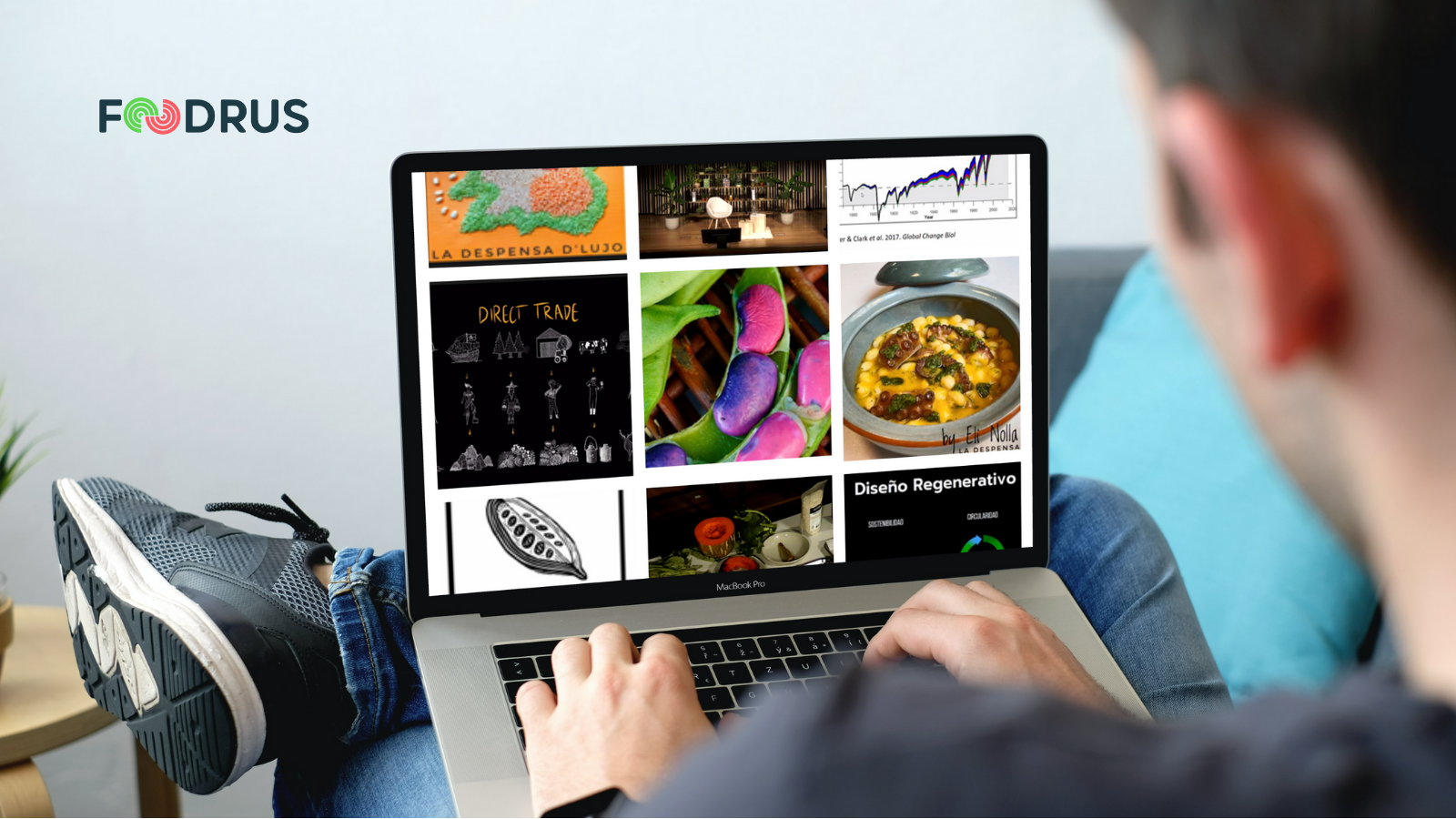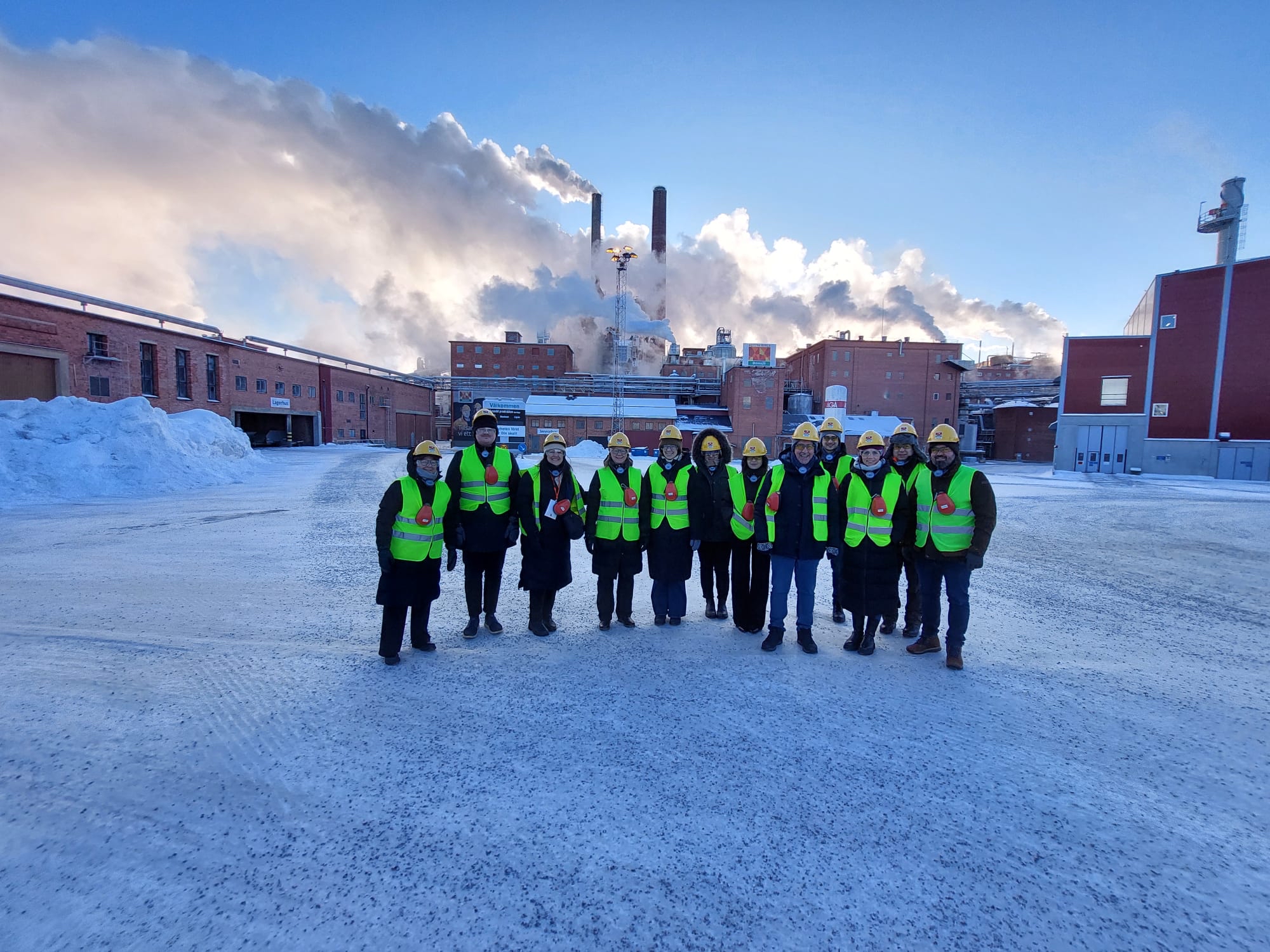The Basque Culinary Center (BCC) in Donostia-San Sebastian, Spain organized the 10th Sustainability Conference- Gastronomy as an Engine of Change (X Jornada de Sostenibilidad – Gastronomía como motor de cambio) which was held on 24 November 2021, in the framework of the project FOODRUS. GEO, along with the whole FOODRUS project team was invited to the event. The community of the BCC joined the face-to-face and online event in Spanish and English, that started with keynote speeches from the Director of the centre (BCC), Joxe Mari Aizega and BCC Innovation and Director Begoña Rodriguez. They talked about the links among gastronomy, society, and environment. References were made to environmental indicators in the Gipuzkoa region, such as the 123.000 tons of food waste annually produced, 165 kg of waste yearly generated per person and, about the food sector being responsible for 30% of GHG emissions in this region (the Basque Country is internationally known for its gastronomy). The role of the Food Bank of Gipuzkoa, which is a civil organization, has been crucial in the region as they have helped over 20.000 people that have benefited from their social programmes (donations) and projects.
The 10th Sustainability Conference was an event full of inspiring presentations about exciting initiatives such as FRU.TO platform, which aims at engaging actors to strengthen the link of nature and cuisine, the slow food movement and reconnecting the urban space with the field and forest. La Despensa D’ Lujo , presented insights about their production based on traditional agriculture processes how they are implementing their Zero Waste strategy and at the same time how they are working on sustainability with big firms such as Zara.
AMA Taberna moves away from the traditional restaurant model and its success is based on its relationships with the suppliers, teaching clients and consumers where the ingredients come from including their use of by-products and residues. Representatives of the Basque Centre for Climate Change delivered an informative presentation about GHGs connected to Livestock and food industry, the biological processes and natural cycle of nutrients. Also, he spoked about the importance of the re-generative grazing practices, which is a principle-driven agricultural practice of building soil health by managing livestock on perennial and annual forages, and in a way that supports human and ecosystem health, farm profitability, and community and food system resilience (Pasture project).
The BCC Innovation presented scenarios and visions for 2050 on food security, taking into consideration everyday decision we take as consumers and posed the question whether we are being resilient enough to face the current challenges such as climate change, migration, COVID sanitary crisis. SILO is an initiative that favours trade directly with farmers, using re-usable delivery vessels and choosing local ingredients that themselves generated no waste. Among the concluding messages of the morning session, speakers encouraged participants to support people that are already working on sustainability, support “good” recycling, start composting and look around their network and help local Zero waste initiatives be more successful.
In the afternoon there were two workshops, one led by researchers at BCC Innovation about gastronomic revaluation of food discards, how we need to change our perception of discarded food and start seeing them as raw materials instead that could be used as ingredients in new dishes. Useful examples were presented; fish bones and fish guts that shouldn’t be treated as sources of protein and carbohydrates. She presented BCC’s innovative work in transforming raw materials through fermentation to new products such as using breadcrumbs to create soy sauce. This way giving a new value to the discarded food that can once again enter the value chain. She also gave a live demonstration on the possible uses of food parts that are usually treated as waste (such as artichokes, broccoli, squash). The second presentation of this workshop.
The second presentation by One One Cacao, was an motivating one, parting from the history and state of cacao production in Jamaica, and its social implications. The founder of One One Cacao is working towards improving the local value chains through putting the value of production back to local farms and farmers while also increasing the value and price of the products. One One Cacao is working on giving communities a chance to reacquire the knowledge-base and skillset of the fermentation processes, needed for cacao and chocolate production. The long-term goal of One One Cacao is to make Jamaican local cacao production successful again and exporting it overseas.
The second workshop consisted of a panel of entrepreneurs and students of BCC talking about the necessary elements of designing a resilient business; interconnected and systemic vision, regenerative businesses, make the product accessible, affordable, and desirable to feed consumers in a sustainable manner. The changes in consumers generated by the COVID sanitary crisis were mentioned, such as change in demand, more informed, active and conscious consumers. Comparison between the traditional business models and the regenerative design was described, stressing that the goal of the latter is to replenish and restore. As examples of regenerative businesses MURI posed the example of Contract farming, or El Super de los Pastores small yet very successful businesses in Spain that use no intermediaries for their supplies, and they have a Zero waste policy.
Mare Nostrum & Casa Orzaez shared with the audience the story of their family business, and the cheese workshop and fermented products were presented and tasted among the participants. According to their Manisfiesto they are fully committed to the sustainable production, as well as creating a gastronomic experience that brings reconciliation with the traditional kitchen. Among the concluding remarks of the moderator, it was said that in order to transform your businesses deep understanding of the local conditions and food system is essential to create a holistic vision, giving voice to all stakeholders that work in the field as well. It was also mentioned that eating is a political and social act, it will determine how we influence the food systems and our livelihoods with the choices we make. Eating is also a tool for great change, self-empowerment, to tackle environmental issues such as climate change, deforestation, and loss of biodiversity.
At GEO, we applaud this initiative of BCC to host such exciting and inspirational events, providing space for exchange of innovative ideas, partnerships and dialogue on how to improve our food systems in the path of food security, sustainability, and Zero waste.



